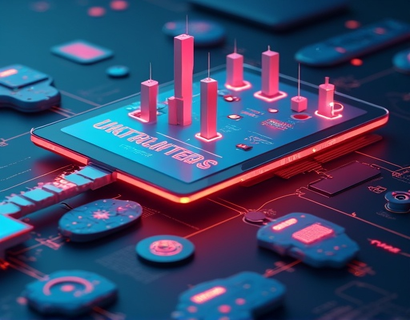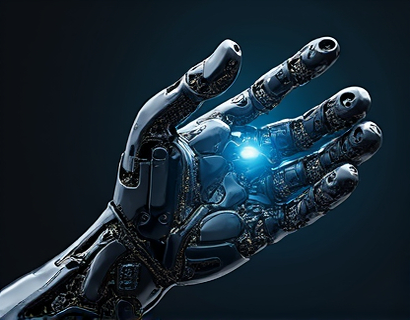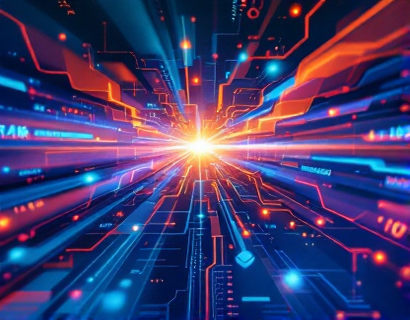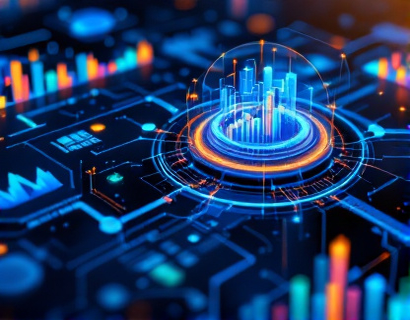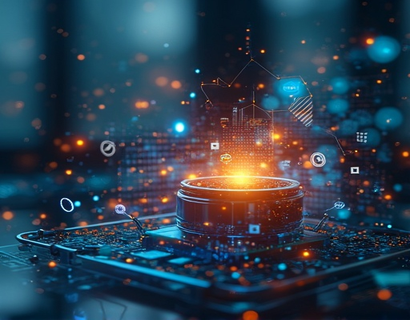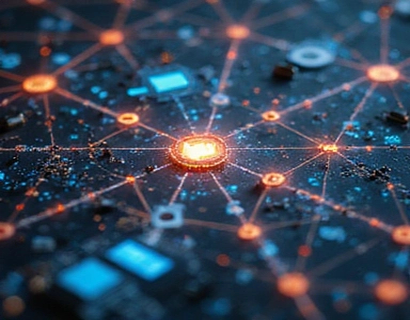Unlocking Advanced Digital Empowerment: The Synergy of AI and Crypto
The intersection of artificial intelligence and cryptocurrency represents a frontier of digital innovation, offering unprecedented opportunities for tech enthusiasts and early adopters. This comprehensive guide delves into the ways these advanced technologies can enhance security, efficiency, and innovation online, providing a roadmap for those looking to elevate their digital presence in the rapidly evolving landscape.
Understanding the Basics: AI and Crypto
Artificial intelligence, or AI, encompasses a broad range of technologies designed to simulate human intelligence processes by machines, particularly computer systems. These processes include learning, reasoning, and self-correction. On the other hand, cryptocurrency is a digital or virtual currency that uses cryptography for security, operating on a decentralized network typically based on blockchain technology.
The integration of AI with cryptocurrency is not merely a technological curiosity but a powerful combination that can revolutionize various aspects of digital interaction. By leveraging AI's capabilities, cryptocurrency systems can achieve higher levels of security, efficiency, and user experience.
Enhancing Security with AI and Crypto
Security is a paramount concern in the digital world, and the combination of AI and cryptocurrency offers robust solutions. Traditional security measures often rely on static protocols, which can be vulnerable to sophisticated cyber attacks. AI introduces a dynamic layer of security through machine learning algorithms that can adapt and respond to new threats in real-time.
In the context of cryptocurrency, AI can enhance security by detecting and mitigating fraudulent activities such as phishing, scams, and unauthorized transactions. Machine learning models can analyze patterns and anomalies in transaction data, flagging suspicious activities for immediate review. This proactive approach significantly reduces the risk of security breaches and builds trust among users.
Moreover, AI can improve the security of cryptocurrency wallets and exchanges. Advanced biometric authentication methods, such as facial recognition and voice recognition, powered by AI, provide a higher level of security compared to traditional password-based systems. These biometric methods ensure that only authorized users can access sensitive information and funds.
Boosting Efficiency Through AI and Crypto
Efficiency is another critical aspect where AI and cryptocurrency intersect. Cryptocurrency transactions, especially those on blockchain networks, can be slow and costly due to the need for consensus among network participants. AI can optimize these processes by predicting transaction patterns and adjusting parameters to reduce delays and lower transaction fees.
Smart contracts, self-executing contracts with the terms directly written into code, can be enhanced with AI to automate complex decision-making processes. AI algorithms can analyze conditions and execute actions with precision, reducing the need for intermediaries and speeding up transaction times. This not only improves efficiency but also reduces costs associated with traditional financial systems.
In addition, AI can optimize the mining process in cryptocurrency networks. By predicting energy consumption and adjusting mining operations accordingly, AI can make the process more sustainable and cost-effective. This optimization ensures that resources are used efficiently, contributing to the overall sustainability of cryptocurrency ecosystems.
Innovation and User Experience
The synergy of AI and cryptocurrency fosters a rich environment for innovation, particularly in enhancing user experience. User interfaces powered by AI can provide personalized experiences, adapting to individual preferences and behaviors. For instance, a cryptocurrency wallet app can learn a user's habits and suggest optimal times for transactions or investments based on historical data and market trends.
AI-driven chatbots and virtual assistants can offer real-time support and guidance, answering queries and providing insights in a conversational manner. This level of interactivity not only improves user satisfaction but also reduces the burden on human support teams, allowing for more efficient service delivery.
Furthermore, AI can enhance the accessibility of cryptocurrency platforms. Natural language processing (NLP) technologies can translate complex technical information into simpler, more understandable language, making these technologies accessible to a broader audience. This democratization of knowledge empowers more people to participate in the digital economy.
Case Studies: Real-World Applications
Several projects and platforms are already leveraging the combined power of AI and cryptocurrency to drive innovation and enhance digital experiences. One notable example is DeFi (Decentralized Finance), where AI algorithms are used to optimize lending, borrowing, and trading processes. These algorithms can assess risk more accurately, set dynamic interest rates, and automate portfolio management, making financial services more efficient and accessible.
Another example is the use of AI in cryptocurrency market analysis. Platforms that employ machine learning models can analyze vast amounts of data to predict market trends and identify profitable trading opportunities. These insights can be invaluable for traders and investors looking to make informed decisions.
A third case study involves the integration of AI in blockchain-based supply chain management. AI can track and verify the authenticity and origin of products, ensuring transparency and reducing fraud. This application not only enhances security but also builds consumer trust in digital transactions.
Challenges and Considerations
While the potential benefits of combining AI and cryptocurrency are significant, there are challenges and considerations that must be addressed. One major concern is the regulatory landscape. The intersection of these technologies operates in a relatively uncharted legal territory, and compliance with varying regulations across different jurisdictions can be complex.
Another challenge is the technical complexity involved in integrating AI with cryptocurrency systems. Developers need a deep understanding of both fields to create robust and secure solutions. Additionally, the computational resources required for AI algorithms, especially those involving deep learning, can be substantial, posing challenges in terms of scalability and cost.
Privacy is also a critical issue. While AI can enhance security, it also raises concerns about data privacy and the potential for misuse. Ensuring that user data is handled ethically and transparently is essential to maintaining trust in these systems.
Future Prospects: The Road Ahead
The future of AI and cryptocurrency integration holds immense potential. As technology advances, we can expect more sophisticated AI models that can process and analyze data at unprecedented speeds, further enhancing the efficiency and security of cryptocurrency systems. The development of quantum computing, for instance, could revolutionize both AI and blockchain, opening up new possibilities for secure and fast transactions.
Moreover, the growing adoption of 5G and IoT (Internet of Things) technologies will create a more interconnected digital world, where AI and cryptocurrency can play pivotal roles. Smart cities, connected devices, and decentralized applications will benefit from the combined strengths of these technologies, driving innovation and transforming various industries.
In conclusion, the fusion of AI and cryptocurrency represents a powerful force in the digital realm, offering enhanced security, efficiency, and innovation. For tech innovators and early adopters, embracing this synergy can unlock new opportunities and empower a seamless digital experience in the ever-evolving landscape.



